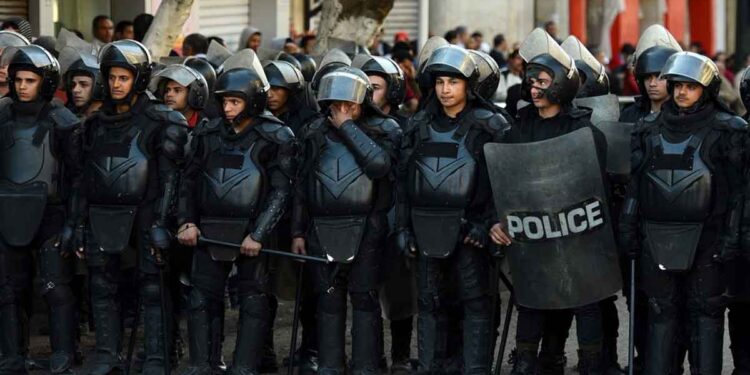Arab Organisation for Human Rights in the UK (AOHR UK) notes that whilst Egyptian President Abdel Fattah al-Sisi, who came to power via a military coup against the elected government in 2013, announced on 25 October of this year the lifting of the nationwide state of emergency, the battery of highly repressive laws that he has introduced since taking power remain in force.
Moreover, the announcement of the end of the state of emergency was followed, on 31 October, by Egypt’s House of Representatives (lower-house) approving several amendments to terrorism laws that, critics warn, give the regime still greater powers.
Two of the three amendments —‘Protecting Vital Facilities’ and ‘Guarding State Secrets’ — give the military far greater power over Egyptian society, and make any unauthorised analysis of that power illegal. The third amendment, ‘Fighting Terrorism’, gives the regime sweeping powers, including imposing arbitrary curfews.
Numerous critics have pointed out that the same amendments give the regime much the same powers as those afforded to it by the state of emergency itself.
Hence, AOHR UK affirms that whilst the state of emergency may have been lifted, Egypt still remains a profoundly authoritarian and indeed unjust country.
Those laws include the 2013 anti-protest law, the 2015 ‘Confronting Terrorism’ law, and the 2019 NGO law – all of which have been used against pro-democracy, pro-rights activists. And indeed, Egyptian prisons continue to hold 10s of 1000s of political prisoners, many of whom were detained on the basis of that same state of emergency. AOHR UK therefore demands that the numerous repressive laws be taken from the statute books and, just as pressingly, that all political prisoners be granted clemency.
AOHR UK points out that the state of emergency in Egypt has been used –in conjunction with those laws– to surveil, harass, and detain any and all critics of the undemocratic Sisi regime. What is more, the length of continuation of the state of emergency was itself illegal, since such a state is only constitutionally permissible for a maximum of three months.
It is for all these reasons –the illegality of the state of emergency itself; the fact that numerous laws replicate the state of emergency’s provisions in practice; the fact that recent amendments only strengthen those laws; and, finally, the fact that the victims of the ‘emergency’ circumstances continue to languish in Sisi’s prisons– that AOHR UK welcomes the lifting of the state of emergency in only the most limited sense.






























